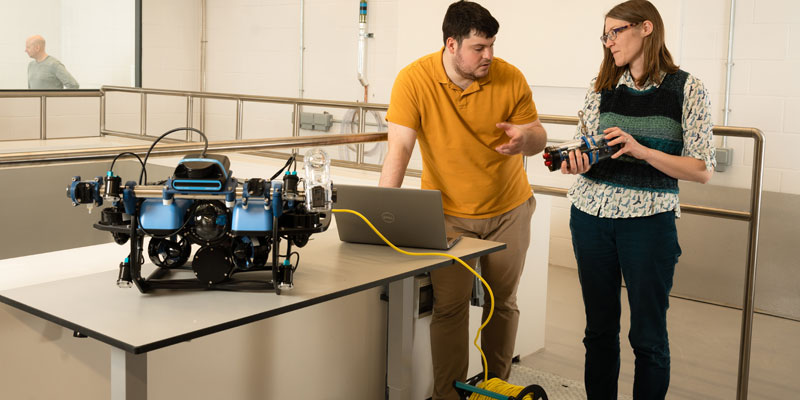
Design and verification

“The Institute brings so much multidisciplinary expertise under one roof that we all end up thinking outside the box, and that’s where the best new ideas and opportunities come from.”
Professor Ana Cavalcanti, Research Lead.
Activities and Partnerships
Together with PhD students and industry partners, we are developing the science, engineering, and socio-technology that underpins building a robot for laboratory automation for Chemistry and related sciences. The ALBERT programme has the potential to revolutionise experimental laboratory techniques.
Our strategic view is to balance adventure with interdisciplinary research to make tangible impact on future RCAS. Learning from biological processes, our research is involved in the developing biologically-inspired RCAS, with capabilities such as adaptation, evolution, growth, healing, replication and learning.
The leader of the Institute's design and verification pillar is the Director of RoboStar, established as a centre of excellence dedicated to research and technology transfer in the area of Software Engineering for Robotics with a presence in six countries, in industry and academia. Their research and development covers various aspects of modelling, simulation, testing and proof.
